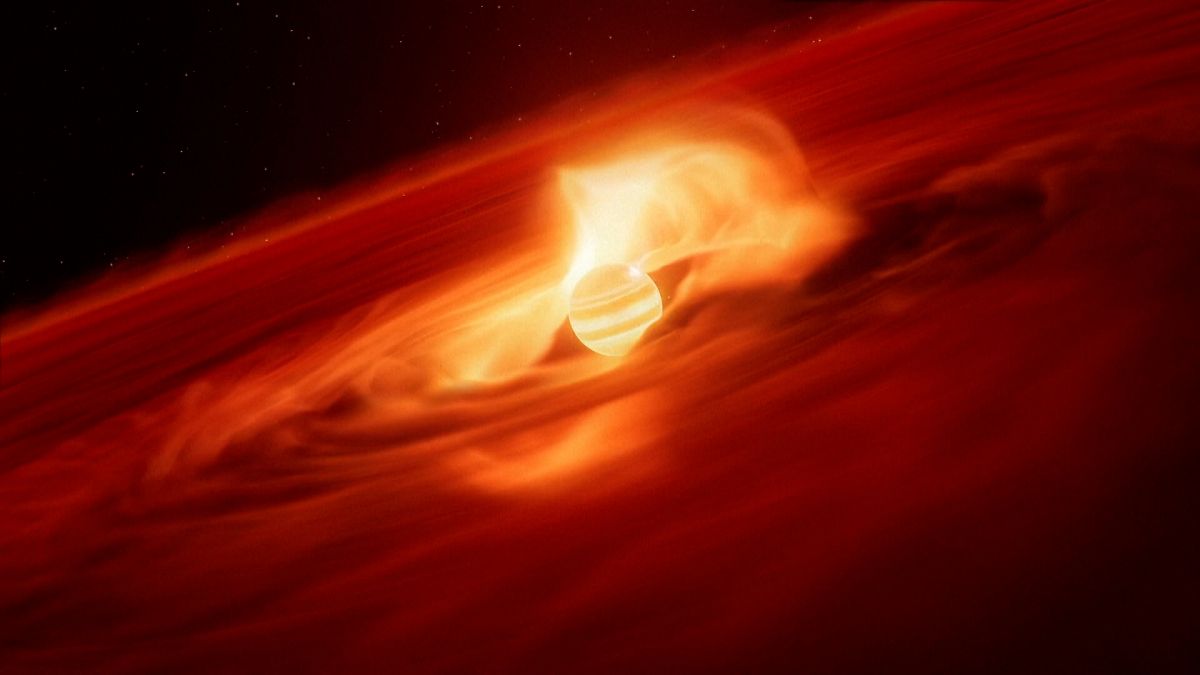Published on
Six hundred and twenty light-years from Earth, a young rogue planet is experiencing an extraordinary growth spurt.
Astronomers have spotted a planet named Cha 1107-7626 taking in gas and dust from the disc around it at a rate of six billion tonnes per second, which is a record for a planet of its size. Similar behaviour has been seen in stars, but not in planets.
“We were trying to study how fast is the rate of material getting into the object. And what we suddenly found is that there was a very strong growth of material that was impacting the central object,” said Víctor Almendros-Abad, an astronomer at the Astronomical Observatory of Palermo and lead author of the study.
“And when we saw this, it’s when we realised that it was a very special phenomenon. This is the first time that this kind of phenomena has been observed in such a low mass object”.
Cha 1107-7626 is still forming, estimated to be five to ten times the size of Jupiter. As a rogue planet, it drifts freely through space without orbiting a star, making its feeding frenzy even more intriguing. The torrent of gas and dust is fuelling unusually rapid growth.
“So in this growth spurt, what we found is that there was an increase by almost an order of magnitude, almost 10 times more mass and flux coming into the object. So this is very significant because you have typical variations because of some inhomogeneities in the material around it, but this kind of variation is not typically observed. It’s not routine variability,” explains Almendros-Abad.
What is causing the planet to consume material so quickly?
One possible explanation is that magnetic fields are funnelling material into the planet – a mechanism long known in star formation, but never before observed in a planet.
“In astronomy, when we talk about quick things, for instance, we say that star formation happens quickly – and quickly we mean a million years. So quickly is very relative,” said Amelia Bayo, an astronomer at the European Space Observatory and a co-author of the report.
“But this object went from gaining material at a very different rate, so at a low level, let’s say, to gaining material hundreds of times more efficiently in days. Something that happens in a matter of days and months in astrophysics is crazy”.
The discovery was made using data from the James Webb Telescope alongside the X-shooter spectrograph on the European Space Observatory’s Very Large Telescope in Chile.
By analysing light before and during the burst, astronomers pieced together how the planet was accreting matter – but many questions still remain.
“So we will definitely follow up on this object because we have observations from this object from almost 20 years ago and 15 years ago and we see a similar behaviour. So there are indications that this is a recurrent event,” said Almendros-Abad.
“Now we need to understand how recurrent, how important, how long-lasting because we didn’t get an idea of the full duration of this burst. We just had a lower limit, let’s say, because after two months, we couldn’t continue observing. So it could be possible that the object is still in this during this enhanced accretion phase,” he added.

